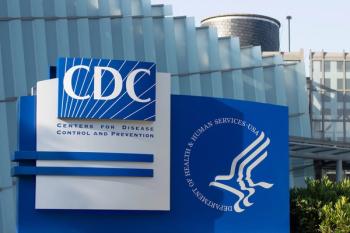
Researchers hopeful to move stress immunization to clinical trials
A new study details the use of bacteria to prevent PTSD, and possibly offer treatment for other stress disorders.
Stress. We all have it, and it plays a role in almost every disease process. But researchers now believe an immunization to combat the physical and behavioral effects of stress may be a possibility.
Research on the immunization is outlined in the
Stress can induce inflammation in the brain, but harnessing the power of Mycobacterium vaccae, an environmental bacterium with immunoregulatory properties, can help to create an anti-inflammatory state in the brain and block the negative effects of stress, according to the report.
Christopher Lowry, PhD, associate professor in integrative physiology at the University of Colorado Boulder and senior author of the study, said the heat-killed preparation of Mycobacterium vaccae, prevents stress-induced priming of neuroinflammatory responses by microglia, and reduces stress-induced anxiety.
The research team investigated the effects of the bacterium by injecting it into mice three times, with a week between each injection. The mouse models also had lower levels of stress-induced proteins, and showed less anxious behaviors when exposed to stress just eight days after the last injection, according to the report.
The immunization resulted in the differentiation of naïve T-cells into regulatory T-cells, Lowry said, and increased the amount of the anti-inflammatory cytokine interleukin 4 (IL-4) in the hippocampus, a brain region that plays an important role in cognitive function, anxiety, and fear.
“The immunization was given one week before stress exposure, but, based on other studies, is likely to be effective when given up to a month before stress exposure,” Lowry said.
The immunization could be used in the prevention of negatives outcomes from stress exposure like PTSD and offered alone, or used in conjunction with standards treatments to offer additional benefit in managing existing PTSD or major depressive disorder.
“We are optimistic that this approach could also be used in treatment,” Lowry said. “We envision use of immunizations with heat-killed mycobacteria for treatment of stress-related psychiatric disorders, in conjunction with cognitive behavioral therapy and treatment as usual.”
Treatment would likely involve biweekly or monthly intradermal injection, Lowry said, adding that the team is also working with collaborators to test efficacy of intranasal and oral administration. Lowry said the research team is working toward approval from the FDA for clinical trials, as well as to secure funding for trials of the immunization for both PTSD and major depressive disorder. The material used in the immunization has already been approved by FDA for clinical trials to treat other conditions.
Newsletter
Stay informed and empowered with Medical Economics enewsletter, delivering expert insights, financial strategies, practice management tips and technology trends — tailored for today’s physicians.






